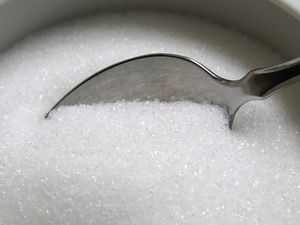
Food meets a lot of needs. Our thinking brain tells us that we need food for nutrition – to give us energy and the building blocks to build and repair tissues. While this is completely true, it has very little to do with why most people eat food. If it did we would only eat foods that worked best to give us energy and the building blocks we needed. Most of our food choices are dictated by other very different needs we are meeting. What other needs are we meeting?
Food is a continuous source of mood altering chemicals that we use to moderate and modify how we are feeling. Food is an essential ritual in the daily process of connecting with others in our world. Food is an important source of pleasure and recreation. Individual foods have all sorts of associated memories and habits attached to them that we enjoy “replaying.” Food plays an essential role in our ability to feel in control of our lives – by our choices of what and when we choose to eat or not eat. How would you feel if you had no say what so ever over what you ate, when you ate, or even if you would eat at all?

Food is so much more than just nutrition to us. That is why it is so hard to get people to change their food habits, even when they know perfectly well that what they are eating is killing them. A bit of Alcoholic’s Anonymous wisdom applies here “Our knowledge avails us not.” Head knowledge can enable us to seize control in the moment and force intelligent choices. But emotional needs always win out in the long run. So telling a person to stop eating a food they rely on for meeting feeling needs is pointless – the feelings will always win in the end.
So how do people change? The most powerful but also most uncommon way to change is to experience a life-transforming event that fundamentally changes our relationship to life. When our basic reason for being alive changes direction, our system is open to changes in its habits. We actively seek out new patterns of behavior that support the positive change we have experienced. A near death experience, the birth of a child, the loss of a loved one, a religious conversion – these are examples of transforming experiences for some people. But even these experiences rarely generate lasting changes.

The more common route to change is through the gradual assimilation of new behaviors crowding out old behaviors. This is especially powerful if the new behaviors are more rewarding than the old behaviors. We see this a lot when we form new relationships. Say we start up a new relationship with someone who really loves Asian food – something we never had an attraction to in the past. Because they love it so much, they are much more relaxed and connecting with us when we go with them to get Asian food. Because we love the connection with this person, those good feelings get transferred to the food, and before you know it we love Asian food. In fact many studies have demonstrated that diet and health directly correlate to what friends and lovers you have. If you want to be healthy, hang out with healthy people.
But what if you don’t have any life transforming experiences scheduled this week, and no new love interest to stimulate different food choices planned for this week either – how do we make different food choices to improve our health? The answer here is food swapping. Swap out a bad food choice for a better choice that very nearly matches the needs met by the old choice. This works when the new food choice meets the emotional needs, but not as well when you are getting specific chemical brain impacts from the old food source. For example, stevia sweetened soda is a wonderful replacement for sugar heavy regular soda when you need that bubbly sweet beverage feeling with your meal. But when what you want is the specific feeling numbing effects created by sugar, then stevia just does not do the job. Sugar is a disassociative drug, like alcohol, that decreases our feelings to more manageable levels.

The foods that have well-known drug effects on the brain are sugar, salt, alcohol, coffee, tea, chocolate, dairy, and gluten containing grains. Individual food sensitivities can cause any food to create a drug effect on the brain, but these are not general effects for most people. We can meet these brain “needs” with select herbs and amino acid combinations in the short run, but generally some sort of personal growth work to change personal relationship to life issues has to be done to make long-term changes.
Food swapping works for the 60% of health improving diet changes that involve most emotional needs. When you are out with friends, a burger on a gluten free bun works just as well as a burger on a regular bun. The point is you are having a burger with your buddies. If you really want that sweet treat after dinner, a sugar free candy will work just as well as a regular candy… unless what you really want is the sugar drug effect.
Food swapping works because the brain is like a jigsaw puzzle – thousands of pieces all fitting together. These pieces all work together to create a feeling called homeostasis – that general ‘everything is ok and running smoothly’ feeling. You cannot simply remove pieces of that puzzle and maintain the feeling of homeostasis any more than you can remove random pieces of your car’s engine and expect it to run smoothly. That is why diet advice that says to simply avoid certain foods and to suppress certain desires does not work. The brain does not work that way. It is ok with replacing one puzzle piece with another that works similarly, but it is not ok with just removing pieces that it has come to rely on to get its feeling needs met.

So with this in mind I would like to suggest a simple diet change that has powerful health benefits. Probably one of the most toxic foods in our diet is rancid oil. This is not just because it is toxic, but also because we consume so much of it daily. Most of the other toxic things we ingest are consumed in tiny amounts – less than a quarter teaspoon a day. But we consume tablespoons of rancid oils daily. Any time you heat a vegetable/seed oil it turns rancid, so every deep fried food is rancid. Chips, chicken, French fries, doughnuts, and so on are all toxic. Less toxic choices would be – baked chips, instead of the typical cooked in boiling oil chips, baked or rotisserie chicken, instead of fried, potato salad instead of French fries, cookies or brownies instead of doughnuts. When you need to wok stir fry or sauté, use tree fruit oils like coconut, olive, and avocado rather than vegetable/seed oils. Tree fruit oils do not go rancid as easily. I am not saying these are the best foods to eat, but they are a lot better than the rancid oil containing alternatives we usually eat.
Eliminating rancid oils (known these days as age promoting free radicals) is a doable shift. Rancid oils do not have any brain drug effects that I know of, so that makes it easier. Alternatives are easy to come by and the benefits make the shift well worth the extra effort to adapt to the change in choices.

Food swapping can be used to upgrade the majority of your diet that might still contain unhealthy choices. It is important that you get it across to your brain that you will never have to ‘go without.’ You are just going with slightly different, but ok. The brain freaks out when faced with deprivation, so don’t go there. Just engage the gradual upgrade process of food swapping – healthier alternatives that still meet your needs. Also, don’t rush into this. One change every three to four weeks is about as fast as you want to engage the upgrading of your diet. The brain has to get the feeling that each change is really working in lots of situations to really embrace the changes. It is not enough to be good with change while you are on an emotional high. You need the changes to work for you while you are in the dumps as well. That is when you know you have really changed – when the change sticks even when your life has gone in the crapper for a bit.
Hopefully understanding a little bit about how the brain makes changes will empower you to give the change process a try. Nothing you can do will have as powerful an impact on your health as upgrading you diet. No amount of pills or supplements you can take will compensate for a bad diet. Health comes from insanely simple things – clean air and water, fresh food, su

nlight, exercise, personal purpose, and loving relationships. Grab some health and upgrade your life today.
